The earthquakes that have hit Turkey have caused a lot of outrage, especially when new buildings collapse. The BBC looked at three new buildings that have been reduced to rubble in an investigation into building safety. Two massive earthquakes, measuring 7.7 and 7.6 on the magnitude scale, destroyed buildings of all kinds in southern Turkey and northern Syria. Unfortunately, they killed thousands of citizens. But the pulverization of even some of the newest apartment blocks has also raised urgent questions about building safety standards. After all, modern construction techniques should mean that buildings can withstand earthquake of this magnitude. Regulations following previous disasters in the country should have ensured that these protections were built in.
Also See: Apple and Google Announce Support for Earthquake
BBC Reports
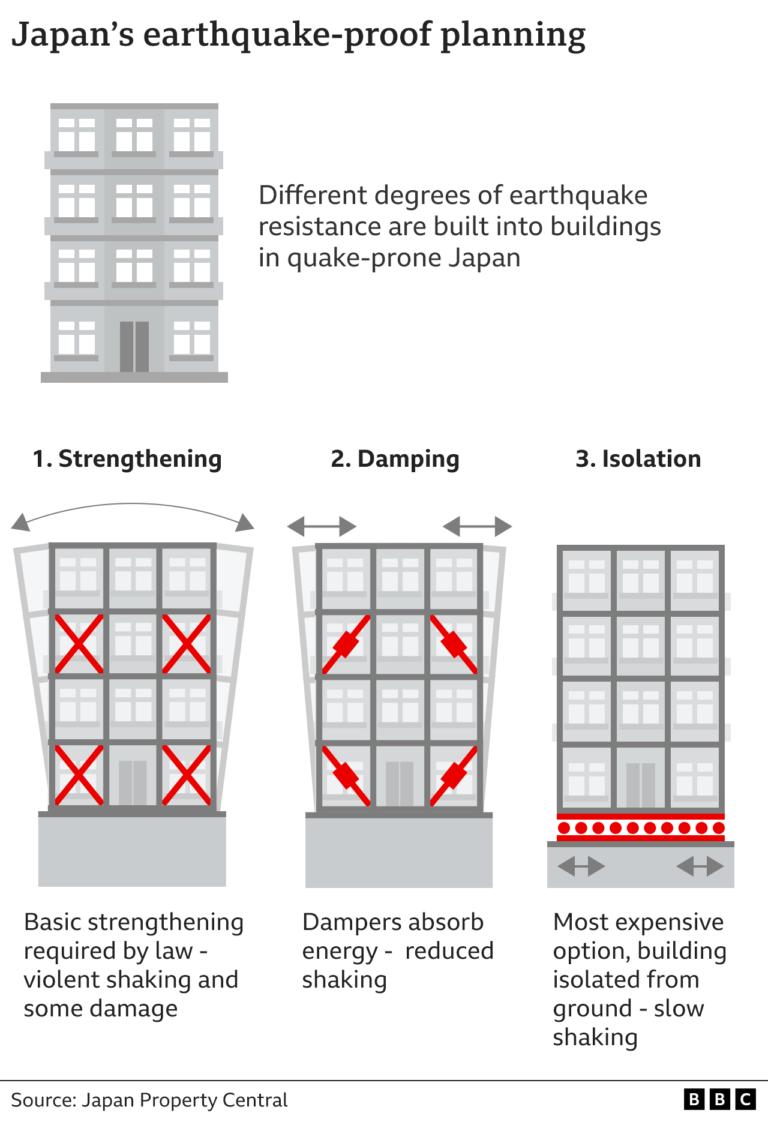
The lower half of an apartment building in Malatya appears to be collapsing, while the rest stands at an angle on dust and rubble. We were told that this building complies with the latest earthquake regulations. The apartments were newly built last year. And screenshots were shared on social media with the words "completed in accordance with the latest earthquake regulations".
The ad claimed that all materials and workmanship used were of "premium quality". While the original ad is no longer available online, screenshots and videos circulating on social media match similar ads from the same company. The latest construction means that structures in earthquake-prone areas must have been built to the latest standards updated in 2018, which require structures to use high-quality concrete reinforced with steel bars. Columns and beams must be distributed to effectively absorb the impact of earthquakes. However, the BBC was unable to verify the construction standards used in this block.
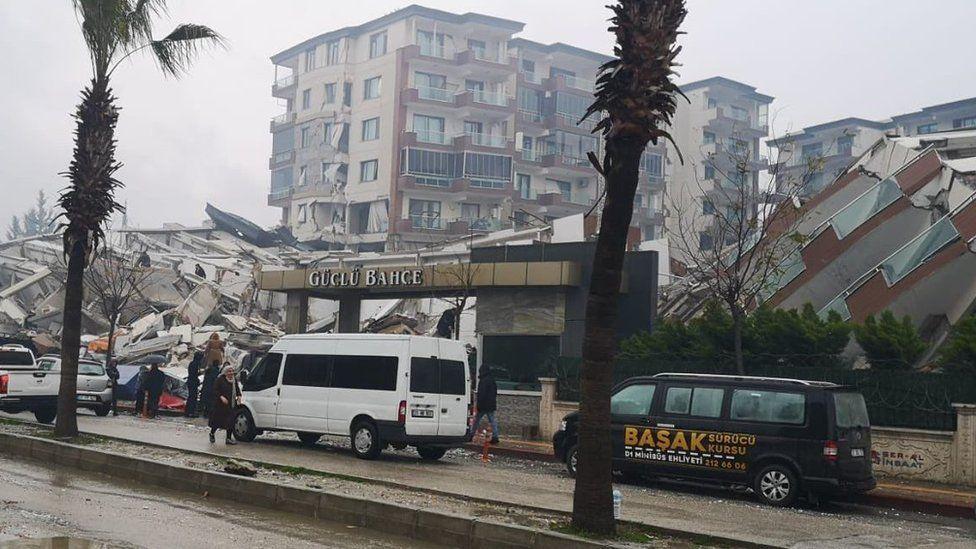
Photos show the massive collapse of another recently built apartment building in the port city of Iskenderun. The side and back of the 16-storey building has completely collapsed, leaving only a sliver of the block standing. The BBC paired the image of the collapsed building with a promotional photo released by the construction company, showing it was completed in 2019. This means it must also have been built to the latest standards. The BBC contacted the construction company responsible. But it received no response.
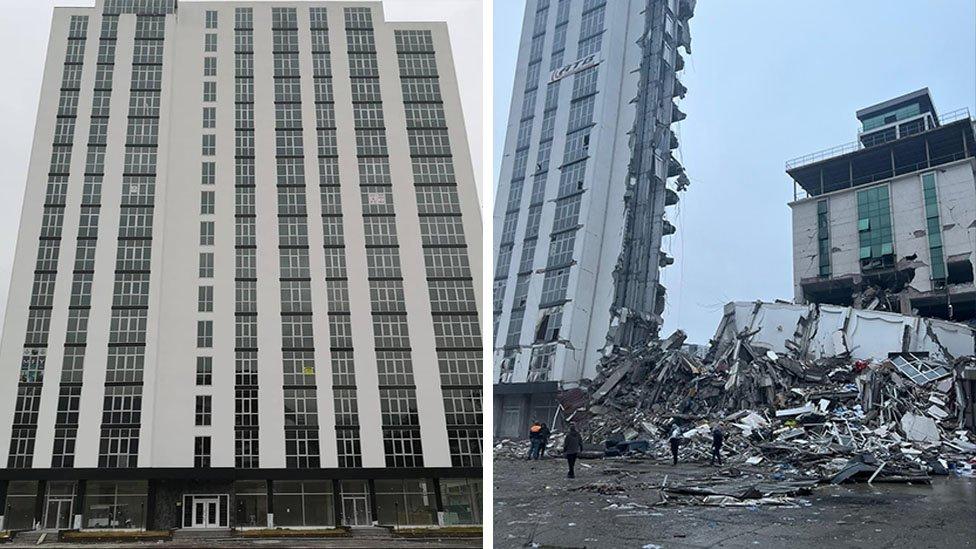
Another image, confirmed by the BBC in Antakya, shows most of a nine-story apartment complex reduced to rubble behind a sign with the name of the complex. The video of the opening ceremony of the residential complex, which confirmed its completion in November 2019, was investigated. "The Güçlü Bahçe City project in particular is special compared to others in terms of its location and construction quality." says Servet Atlas, owner of Ser-Al Construction, in the video.
Prof. David Alexander Earthquake Explanation
As many buildings have collapsed in the affected area, many in Turkey are asking questions about the nature of building regulations. Despite the strength of the earthquakes, experts say that properly constructed buildings should be able to survive. Prof. David Alexander, an expert in emergency planning and management at University College London,
Failure to Implement Zoning Regulations
Building regulations have been tightened following previous disasters, including the 1999 earthquake that killed 17,000 people around the northwestern city of Izmit. But the laws, including the latest standards set in 2018, have not been adequately enforced. "Partly, the problem is that there is too little retrofitting of existing buildings, but there is also too little enforcement of building standards in new buildings." explains Prof Alexander.
The BBC's Middle East Correspondent Tom Bateman speaks to people in the southern province of Adana, where a building that collapsed was damaged in another earthquake 25 years ago, but remained without any retrofitting. Countries like Japan, where millions of people live in densely populated high-rise buildings despite the country's history of severe earthquakes, show how building regulations can help keep people safe in disasters.
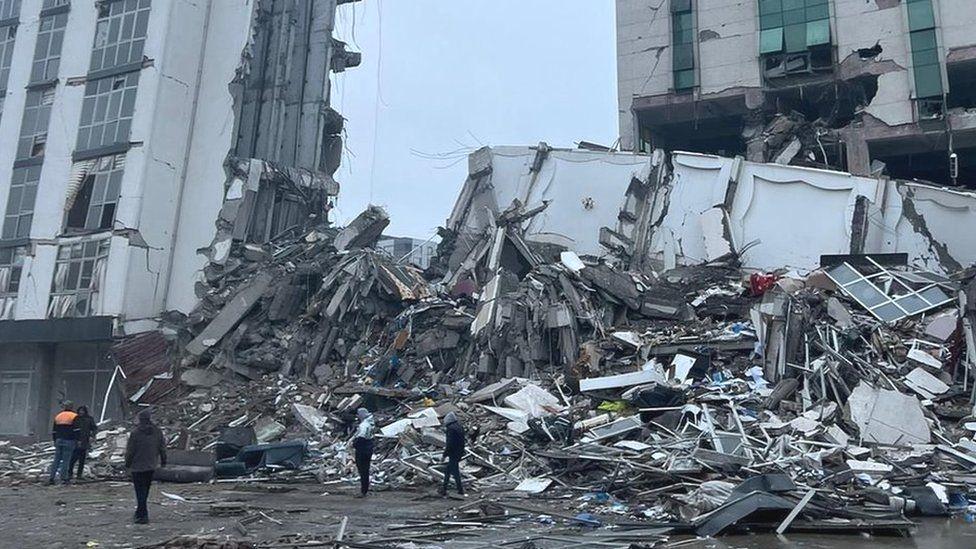
Some 75,000 buildings in the earthquake zone in southern Turkey have been granted construction amnesty, according to Pelin Pinar Giritlioglu, Istanbul President of the Chamber of Urban Planners of the Union of Chambers of Turkish Engineers and Architects. According to reports, just a few days before the latest disaster, Turkish media reported that a new draft law that would provide a new amnesty for recent construction work was awaiting parliamentary approval.
Geologist Celal Şengör said earlier this year that it was a "crime" to pass such construction amnesties in a country divided by fault lines. After a deadly earthquake hit the western province of Izmir in 2020, a BBC Turkish report revealed that 672,000 buildings in Izmir had benefited from the latest amnesty.
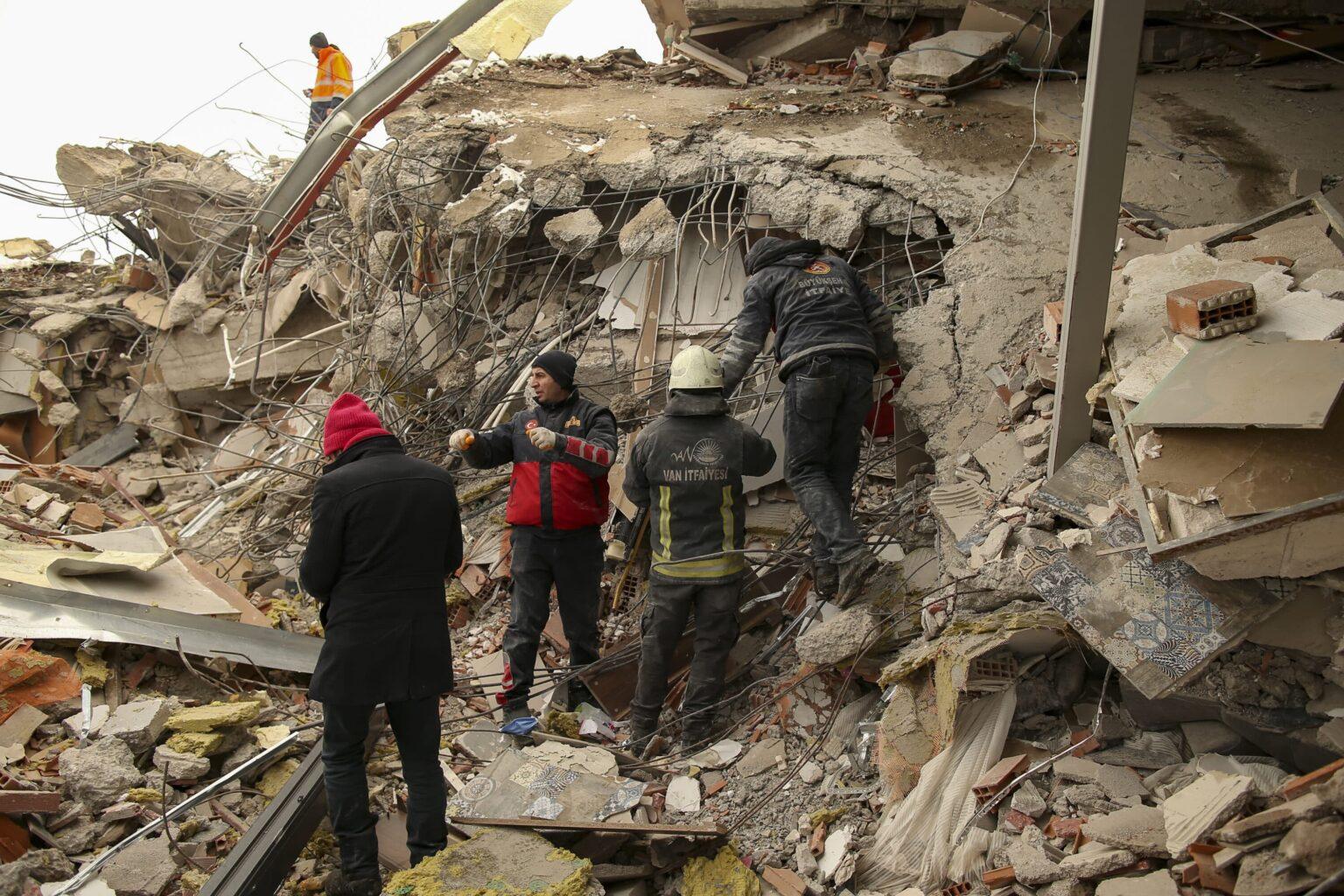




No comments yet for this news, be the first one!...